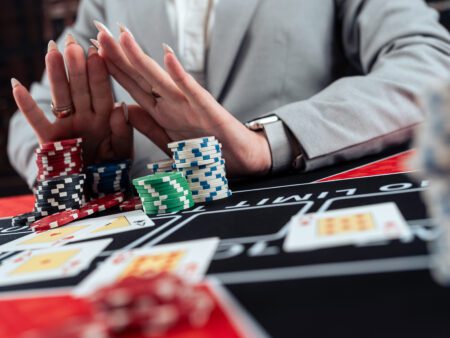Delve into the nuances of the psychological aspects of online gambling, focusing on coping mechanisms for losses and the concept of ‘bad beats’. Empower yourself with the knowledge to regulate emotions and gamble responsibly.
The Psychology of Withdrawals: Coping with Losses and Bad Beats
The Paradox of Gambling: Wins, Losses, and Acceptance
One of the most intriguing elements of online gambling is the psychological chess game it involves. In contrast to many other types of gaming, it forces players to cope with the harsh realities of losses and setbacks – often referred to as ‘bad beats’ in the gambling world. For frequent players, these moments provoke empathy and introspection, becoming key aspects of the gambling experience.
Understanding Bad Beats
By definition, a bad beat is an upsetting, often sudden, loss in a game where the player was either the favorite to win or believed they had a strong chance of winning. The realization of an unexpected loss induces frustration, anxiety, and often, a burning desire to recover that loss. This is the point where sound decision-making begins to erode, and compulsive gambling tendencies can rear their ugly heads.
The Psychological Impact of Withdrawals and Losses
Losses exert a profound psychological effect on gamblers. Research shows that the impact of a loss is sometimes twice as potent as the joy derived from a win. This phenomenon, known as loss aversion, leads to an intensified emotional response to losses compared to equivalent gains and causes players to make more instinctual, less rational decisions.
Emotion Regulation: Key to Coping with Losses
Emotion regulation in gambling refers to the ability to manage your emotional response to losses, essentially ensuring that these lows do not interfere with your judgement or push you to make foolhardy decisions in an effort to win back lost money. It’s imperative to accept losses as part of the game and understand that not every day can be a winning day. The true gambler is one who can withdraw when luck isn’t prevailing, understanding that the beauty of online gambling lies in navigating between its highs and lows.
In your journey as an online gambler, you may have noticed significant mood swings correlated with your wins and losses. This observation is not merely anecdotal; there is a field of study encompassing gambling psychology focusing on the emotional processes involved and techniques to maintain control.
Coping with Losses: An Essential Skill in Gambling
The harsh reality of gambling is that you will experience losses. It could be an unfortunate sequence of events resulting in a losing streak or a severe singular event, often coined as a ‘bad beat’. Understanding these events and learning how to cope with them mentally is what separates responsible players from compulsive gamblers.
A ‘bad beat’ is a psychological trauma in the gambling world. The term refers to a situation where a player with a strong hand, unfortunately, loses against a player with a statistically weaker hand. It can induce a sense of shock and annoying ‘what if’ thoughts, leading to a spiral of negative emotions.
Psychological Aspects of Losses in Gambling
Scientific studies have uncovered a phenomenon known as ‘loss aversion’. It examines how the pain of losing is psychologically about twice as powerful as the pleasure of winning. This emotional disparity between the highs of winning and the lows of losing can push players into further risk-taking in an attempt to achieve the same high of a win.
This is where the psychology of luck chimes in. In our previous blog post, we explored how luck and chance influence decisions in gambling and the significance of understanding that luck is beyond our control.
Managing Emotions for Successful Withdrawal
Coping with losses in online gambling is not about stoicism or maintaining an emotionless state. It is about accepting the emotions you feel and dealing with them responsibly. Calling it a day when the outcomes are consistently against you can be a powerful decision. It helps in breaking a losing streak and can save you from diving deeper into losses. Processes such as mindful meditation can train your brain to remain composed in the face of losses, allowing you to make better decisions about when it’s time to withdraw.
Conclusion
Understanding the psychological impact of losses and withdrawals is an essential part of responsible gambling. Learn to accept that losses are just as much a part of gambling as wins. Develop emotional regulation skills to stay in control, remembering that the real fun in gambling comes from playing the games and not necessarily from the outcome.
Could you share any experiences with ‘bad beats’ or how you handle losses in online gambling? We invite you to share your thoughts and tips with our community in the comment section below.










